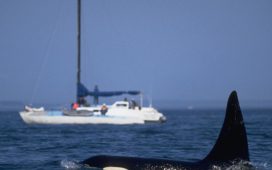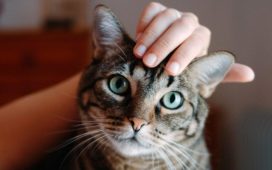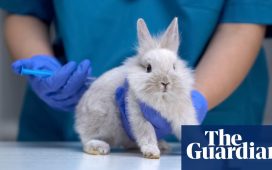On one side of Jubilee Walk, a path that crosses Kensington Gardens towards Kensington Palace, children are laughing as they play on a wooden pirate ship in the Diana Princess of Wales memorial playground on a sunny afternoon.
On the other side of the path some of the richest people on the planet have gathered to drink the JCB digger billionaire Lady Carole Bamford’s Chateau Leoube Provencal rosé, snack on individually wrapped smoked salmon tartare and duck egg sandwiches, and open their wallets to bid on thoroughbred racehorses in one of the world’s most unusual auctions.

Prospective buyers at the Goffs London Sale on Perks Field – part of the Duke and Duchess of Cambridge’s private Kensington Palace garden – were reminded to bring their colours (the brightly coloured jackets jockeys wear when they race) as 14 of the 23 horses up for auction were already entered to race at Royal Ascot.
“We have said to people do bring your colours because if you buy [a horse] tonight and have no colours it could be running tomorrow, and you need your racing colours,” Eimear Mulhern, Goff’s chairman, said as she welcomed guests to the venue on Monday night. “If you see someone walking around with their colours you get some indication they are ready to buy.”

At last year’s sale Vichai Srivaddhanaprabha, the Thai billionaire and owner of Leicester City FC who died in a helicopter crash in October, spent £2m. “He came to the sale and he bought a horse for every day of Ascot,” she said. “That’s what happens at this sale.” More than £25m has been spent on horses at the sale over the past five years.
Mulhern said the rich clientele, who have flown in from Australia, the US, Japan and China, love horses but they are also buying access to “the hottest ticket in town: being in the parade ring with Her Majesty”.
“We had a Japanese man the very first year and his plane was late. We had one horse left in the sale with entry to Ascot and he just bought it,” Mulhern recalled. “It didn’t matter how much it was, though it was £160,000, but two days later he’s at Royal Ascot standing in the parade ring with Her Majesty, and that just meant so much to him.” The horse didn’t win at Ascot but, Mulhern said, it went on to win five big races.
The most expensive horse sold on Monday was Mohican Heights, the two-year-old son of the 2014 Epsom Derby winner Australia, which was was bought for £520,000 by David Simcock, a Newmarket-based racehorse trainer. Simcock declined to identify the buyer, but said: “The clients, who are already in the yard, are always on the lookout for a nice horse and he’s certainly going to get middle distances so he fitted in well.” Mohican Heights is entered in Saturday’s Chesham Stakes (at the time of writing, he was around 12-1).

Just 10 of the 22 lots were sold, for a total of £3.15m, as many of the horses failed to meet reserve prices.
Henry Beeby, Goff’s chief executive, said: “Obviously we would have preferred to sell a few more of the horses but with entries at Royal Ascot we view it in an entirely different way, in that if people can achieve a premium at the sale they will take the money but if not they will go to Royal Ascot and we will be cheering those horses on as well. So we are very grateful for all the support and hope everyone enjoyed themselves.”
Beeby said the Kensington Palace sale, which is sponsored by the Qatari ruler, Emir Tamim bin Hamad al-Thani, was intended more as a shop window with which to attract fresh money to horse racing in future years than to necessarily make money on the day.
“We’re attracting wealthy people from around the world. It’s called the sport of kings for a reason,” he said. “Although it’s more accessible to everybody within the last 25 years or so with partnerships and syndications.”

While promising racehorses often sell for millions of pounds, the real money is in established winners’ sperm, Beeby said. The world’s most valuable horse is Fusaichi Pegasus, an American stallion, who was sold to John Magnier’s Coolmore Stud for $60m (£47m) soon after he won the Kentucky Derby in 2000. Fusaichi Pegasus’s stud fee was once $150,000 a time, but has declined as he has aged and his offspring have failed to live up to his promise.
“In their prime, a stallion will mate with – we call it covering – in the stud season [between February and July] three or four mares a day,” Beeby said. “Probably the world’s greatest stud at the moment is a horse called Galileo. He will be covering that amount of mares.”
Beeby estimated that Galileo would have easily sired at least 1,000 horses. “It’s not very romantic. It is literally over in seconds,” he said. “There’s not a lot of chat.”











